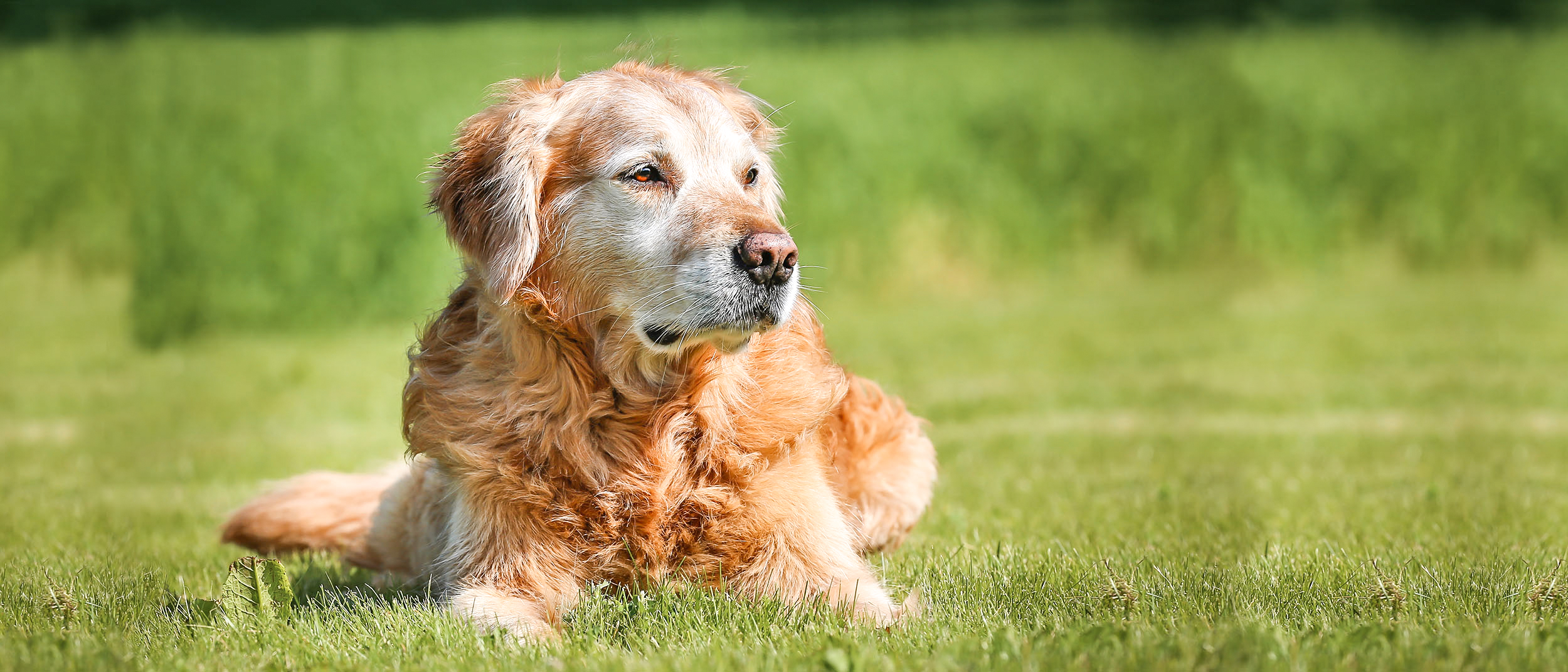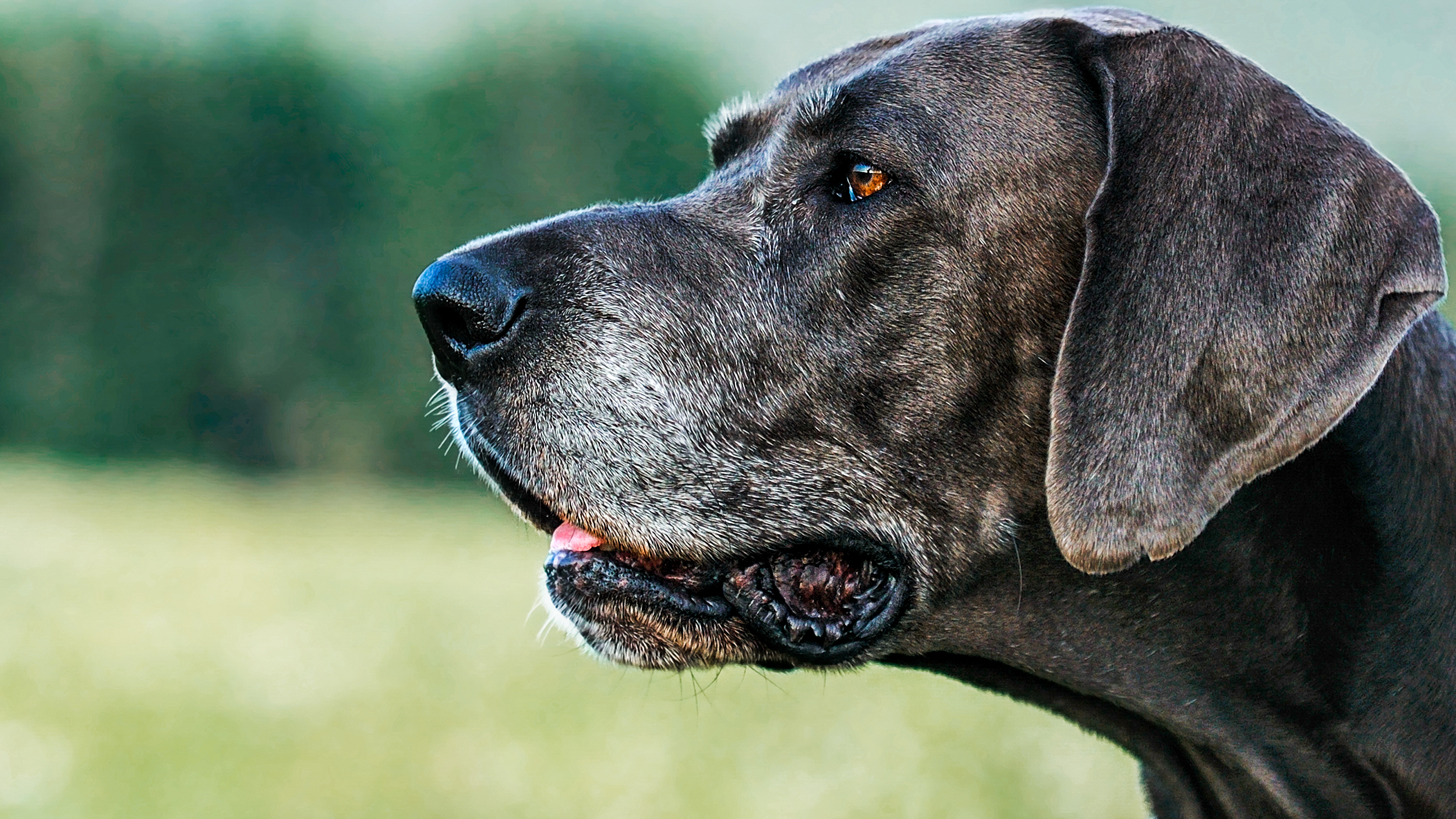Urinary incontinence in dogs

As your dog ages, you will notice changes in their behavior, personality and physique. Incontinence is a common occurrence among older dogs, and it’s important you feel confident in being able to care for them.
If your older dog is incontinent, they’ll stop urinating in the same way as when they were younger; they may not recognize when they are urinating, leave trails of urine on the floor, or struggle to urinate. It’s crucial not to reprimand them for this behavior—they’re not doing this on purpose, but rather because they aren’t able to control these functions.
What causes incontinence in dogs?
Just like in humans, when dogs age their physical form changes; muscles weaken and nerve control over different parts of the body can lessen. Incontinence can be caused by a simple aging of the muscles around the urinary system, and a lack of control over those muscles.
Female dogs are more likely to develop incontinence than male dogs, and some larger breeds have a predisposition to this problem. This includes Boxers, Dobermans, Giant Schnauzers, Great Danes and German Shepherds. Among the spayed female dog population, 30% of dogs weighing over 45 pounds suffer from incontinence; in smaller breeds this is less than 10%.
There are suggestions that obesity can have an impact on the likelihood of incontinence, particularly in neutered female dogs. The concept is that the weight of fat around the urinary system has a mechanical impact on the muscles, which can then lead to incontinence.
Underlying urinary issues can also cause incontinence, including inflammation of the urinary system and cystitis, an infection or the development of "stones" (called urolithiasis). Overall illnesses like diabetes or neurological disorders can also cause incontinence, so it’s important to take your dog to the veterinarian as soon as you notice a change in their behavior to do with urinating.

How can incontinent dogs be treated?
Depending on the cause of their incontinence, your dog will be treated in different ways. If it is a muscular issue, your veterinarian may prescribe certain stimulants that induce better control of their urinary muscles. These are efficient in 75% of cases.
If your dog has an underlying urinary issue, your veterinarian may suggest surgery to remove any stones in their system, prescribe antibiotics to treat infection, and help you choose a diet that can maintain good urinary health. The veterinarian may also suggest lifestyle changes, such as encouraging your dog to be more active and therefore reducing the risk of further urinary problems.
If there is a larger medical cause, your veterinarian will look to treat that as a whole, rather than only the incontinence.
If you see your dog’s behavior around urinating has changed as they’ve aged, there’s no reason to think nothing can be done; make an appointment with your local veterinarian who will be able to advise you on the best course of action.
Related Articles
Find a vet
If you have any concerns about your dog’s health, consult a vet for professional advice.
Like & share this page